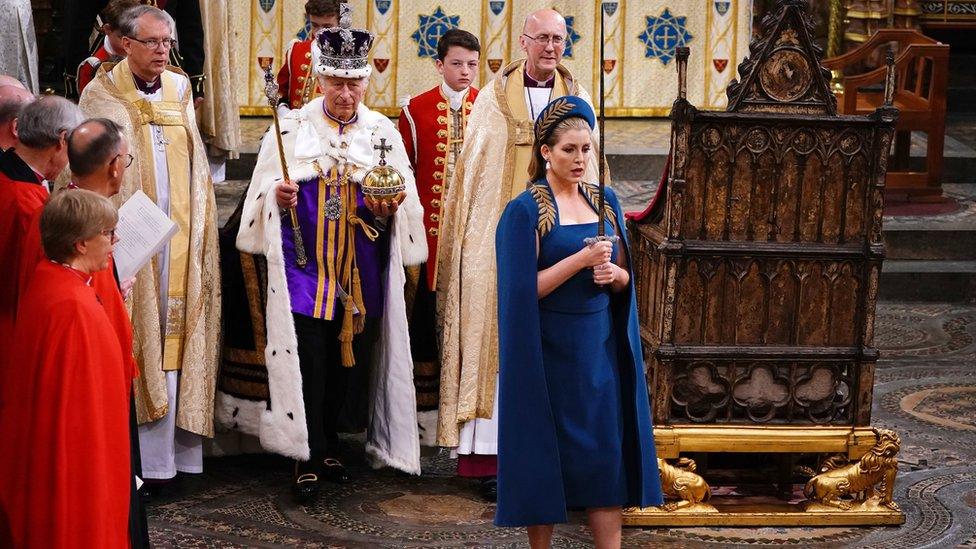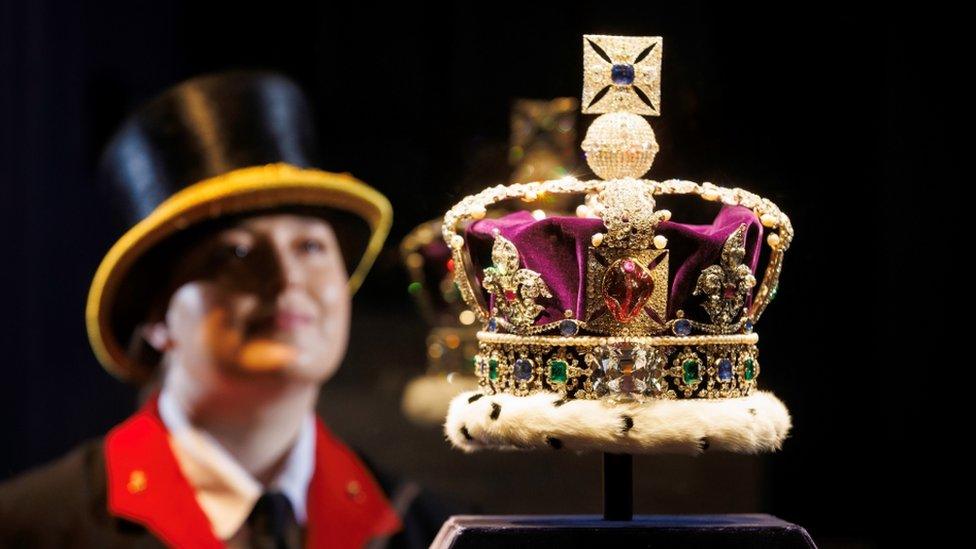Penny Mordaunt sword becomes Tower attraction
- Published
Watch: Penny Mordaunt carries sword ahead of King Charles
The sword carried by Penny Mordaunt at the Coronation has become an unexpected star attraction for visitors to the Tower of London.
A new display is being opened this week in the Jewel House, where the crowns and regalia are kept in the Tower.
But officials at the historical site say the sword of state has become a new talking point for visitors.
Ms Mordaunt later admitted she had taken painkillers to help with holding up the ceremonial sword.
The impact of the TV attention has turned the sword from being a minor part of the display to something visitors to the Tower want to know much more about.
"It's not an object we might have seen visitors looking for particularly in the past - but we expect that they definitely will now," said Charles Farris, a historian of the monarchy at Historic Royal Palaces.
"It's wonderful to see the ways in which the recent coronation has given people a new found appreciation of the crown jewels," he said, expecting the interest in Ms Mordaunt's sword-wielding to make a visit to the Tower more "vivid".

Penny Mordaunt's role became a talking point of the Coronation
The 17th-Century sword, more than 3ft (1m), was carried by Ms Mordaunt in her capacity as lord president of the Privy Council.
On social media, her appearance was likened to a character from Star Wars, a figure from Greek myth or wearing a logo with echoes of Poundland's branding.
She later commended the public for its online creativity and said she had taken a couple of painkillers to get through the demanding role.
The sword is kept in the Tower of London along with the crown jewels and other royal regalia and jewels.
This includes the controversial koh-i-noor diamond, whose ownership is disputed and which was not included in the Coronation.

The Imperial State Crown is part of the display in the Jewel House, at the Tower of London
The new display at the Tower of London now gives visitors more context for the diamond - calling it a "symbol of conquest".
This is meant to be more open and "transparent storytelling", showing how it forcibly changed hands over the centuries.
The Tower curators say public consultations found a particular interest in what had happened to the original medieval crown jewels.
These were broken up in the 17th-Century, after the Royalists were defeated in the English Civil War - and the display includes a gold coin from that era that could have been made from the melted-down crowns and regalia.
The only surviving item, a 12th-Century gold spoon, was also used at the Coronation earlier this month.
The crowns remain the centrepiece of the collection, with the adapted crown of Queen Mary, worn by Queen Camilla at the Coronation, now going on show.
And St Edward's Crown, which was worn by the King and will not be worn again until the next Coronation, can be seen close up.
